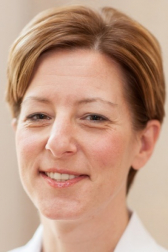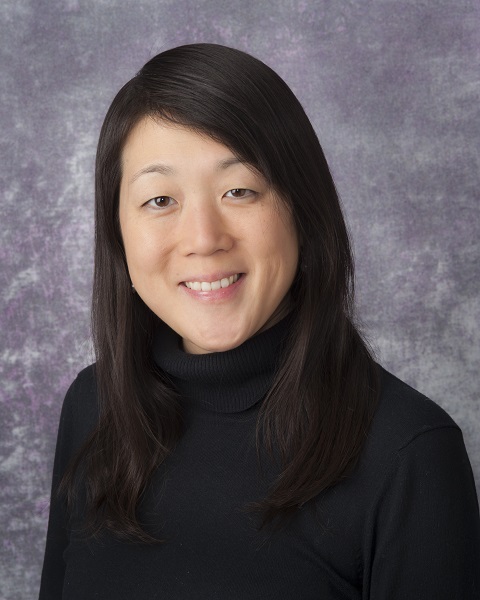Two years ago, ASH launched the Medical Educators Institute (MEI). Prompted by recognition that there are few resources devoted to “teaching the teachers,” the Society worked with committee chairs Drs. Jennifer C. Kesselheim and Marc J. Kahn to construct an intensive, longitudinal mentoring program for hematologists who are on a clinical educator track or whose professional trajectory includes opportunities to develop curricula or work with trainees.
Molly W. Mandernach, MD, MPH, University of Florida College of Medicine
Molly W. Mandernach, MD, MPH, University of Florida College of Medicine
Each year, 20 participants are selected for the program, which consists of a workshop, a six-month series of webinars, and a faculty-mentored scholarly project aimed at launching the participant’s teaching career. The institute kicks off with a three-day workshop held at ASH headquarters, and it consists of sessions on active learning, educational research design in hematology, program assessment and program evaluation, developing multiple choice questions, small-group instruction, and use of technology in medical education. Sessions are also devoted to the ins and outs of promotion and how to define one’s value as a hematology educator, both of which are especially pertinent to junior faculty. Mentorship and networking are another focus of the program, and participants work in small groups with faculty members assigned to each group.
While participants at any stage in their career are welcome to apply, the institute may be particularly helpful at transition points, according to Dr. Molly Mandernach, who participated in 2016. Dr Mandernach is a clinical assistant professor at the University of Florida College of Medicine in Gainesville, and she applied shortly after she took on a new position within the medical school. “I was involved in medical student, resident, and fellow education primarily through clinical experiences, didactic lectures, and mentoring of the adult hematology/oncology fellows. However, a few months prior to applying to MEI, I was appointed to the position of associate course director,” she recounts. She applied to MEI with the hopes that she would gain experience regarding course planning, various educational methods, student and course assessments and feedback, as well as the use of technology in medical education.
Dr. Annie Im is an assistant professor of medicine in the Division of Hematology/Oncology at the University of Pittsburgh, who participated in last year’s MEI and was in a similar situation as Dr. Mandernach. “I had just been offered the opportunity to become program director of our hematology/oncology fellowship program,” she said, “and I was hoping that MEI would provide an opportunity to meet mentors and colleagues in medical education. I was also hoping to find a forum to discuss some of the challenges of a medical education career.”
Both Drs. Mandernach and Im say that they benefited from both the formal curriculum and also the more informal networking and mentorship aspects of MEI. “I had worked with educational mentors and colleagues in other specialties, but this was the first time that I had seen such an emphasis on medical education in hematology,” said Dr. Im. “We also had small groups where we refined our educational scholarly projects, which helped me with my project and was also a lot of fun. My small group still keeps in touch regularly.”
“It was very clear the faculty were dedicated to sharing their experiences in medical education, as well as mentoring the participants,” added Dr. Mandernach. Her scholarly project, which got its start at the MEI, has rolled out in pilot form for the adult hematology/oncology fellows caring for patients with sickle cell disease. It will soon expand to pediatric hematology/oncology fellows, internal medicine residents, and family medicine residents.
The application cycle for the 2018 workshop is underway, with applications due March 30. MEI is open to senior fellows and faculty of any level who see medical education as a major part of their professional roles.
“It was invigorating to be involved with a group of like-minded individuals who were excited about medical education,” Dr. Mandernach summarizes. “Simply put, the program was fantastic.”
For additional information and to apply before March 30, visit www.hematology.org/MEIwww.hematology.org/MEI.


